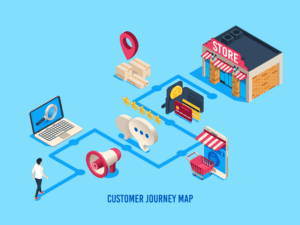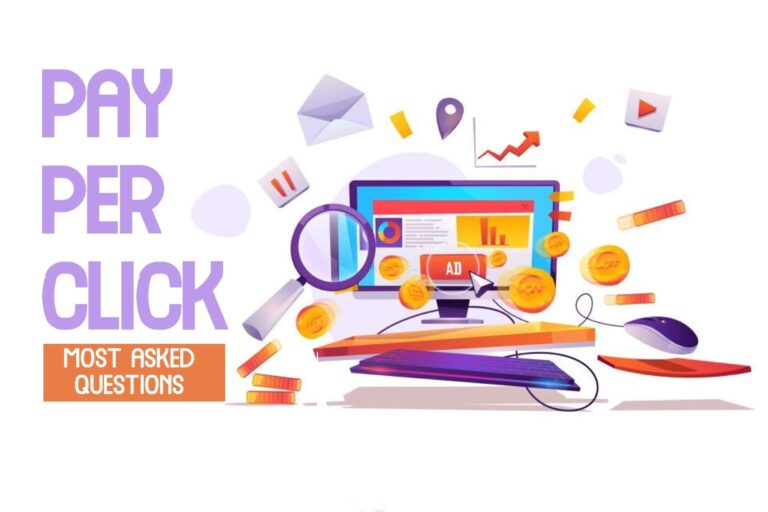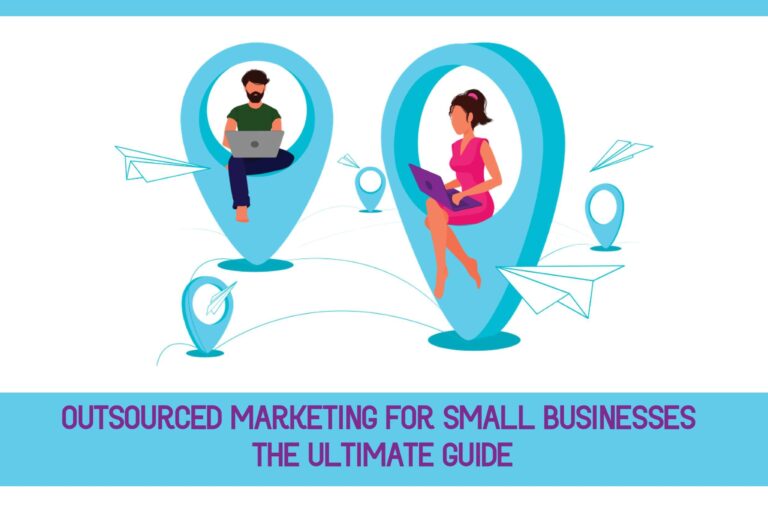TABLE OF CONTENTS
Digital marketing can be as daunting for small business owners as it is exciting. It means a lot to your bottom line, and you want to do it right, yet digital marketing is changing so quickly that there’s an ever-expanding amount of material to learn to stay current and competitive.
Digital marketing is not rocket science. It is easy for small business owners to understand how digital channels work. They know about digital marketing because they already have experience with communicating digitally. Here’s where digital marketers can help: by distilling the best digital marketing practices into actionable pieces of information that small businesses can understand and apply.
Let’s look at 26 key digital marketing tips for small-scale businesses.
1. Invest in a Professional Logo
Your small business must have some digital marketing channels which you are using to connect with the customer: Google Local Business Pages, Facebook Page, Twitter account, or even video channel on YouTube. Without a doubt, professional logo design for your digital assets plays an important role in attracting new clients and engaging existing customers.
2. Make Your Website Has SEO-Friendly Content and is Optimized for Mobile Devices
Since 2012, Google has introduced the “mobile-friendly” label for mobile-friendly websites. This label shows up in place of a green padlock icon and makes the small text easy to read. It is now more important to have a web page that is good for mobile devices than before. This means that mobile-friendly websites will rank higher on search engines like Google than those that are not mobile-friendly.
3. The Design of Your Website is Easy to Navigate and Looks Professional
If your pages are difficult to navigate, people will simply click away rather than going through the hassle of clicking buttons endlessly until they get where they need to be. A good design, on the other hand, will help you create a great first impression and motivate people to stay longer on your website.
4. Blog About New Products or Services You are Offering
Brand awareness is one of the fundamental parts of running your own business. Most people do not have the time to read long and complex websites. Even if they did, it would be challenging to go from page to page while trying to find the product or service that they were looking for. Due to that, you need to make content that stands out from the rest, which can be done by having a blogging strategy in place on your corporate site. When you promote your brand online through social media platforms such as Facebook or Twitter, blog posts will directly increase your chances of getting clicked on and actually bought by customers.
5. Update Content Regularly – Once per Week at Least!
No matter how small or big your small business is if you want people to get acquainted with what it has to offer, blog about it. Blogging attracts potential buyers by introducing them to what your small business is selling and allowing them access to its history.
6. Create a Google My Business Listing
You can check this article on BrightLocal by Stephanie Newton, entitled “Google My Business: The Complete Guide“. One of the things small businesses can do is to create a Google My Business page. The reason why small businesses should set up a Google My Business page is that it is very easy to do, anyone with access to a computer or mobile device can create one.
7. Create a Facebook Page for Your Business
As small business owners, we know how difficult it can be for small companies to stand out in an overcrowded market where competition is fierce and consumers have lots of choices. But starting a Facebook page for your small business could prove to be a powerful marketing tool that allows you to interact with current and prospective customers.
8. Research Your Competitors
It may seem obvious but many small businesses don’t think about what’s happening in their chosen market space. They’ll open up shop without doing any research at all while other small businesses pour hours into researching the best way to advertise their small business. If you are not in this respect, it is never too late to catch up, even if you have already opened for business.
9. Find the Social Media Channel That’s Best Suited for Your Business
Each small business has unique needs and social media accounts are one of the unique requirements. Not every small business must open a business account on each social media platform. As a small-scale business owner, you must find the right social media platform to reach your customers by using social media marketing.
10. Build Your Social Media Presence by Following Other Small Businesses
There are small business owners who fail to learn from their competitors. They think that they have the better idea and can rarely see why it is important to understand them. However, small businesses need to follow competitors on social media. They need to know what works best for others to enhance what they present themselves.
11. Update Social Media Platforms with New Posts Often, Including Videos and Images
According to statistics, 40% of small business owners update their social media profiles less than once a month. This is not good because it makes people think you’re inactive or that your company has closed down as no one replies when they ask for help. Social media is not like a fixed billboard that stands still for months; small businesses must make it dynamic by sharing fresh content often on each platform.
12. Join Social Media Groups in Your Niche and Offer Valuable Advice
Social media groups can be a great source of information and advice for small businesses. It is a great platform for small businesses to advance themselves in the niche they have chosen. Many small businesses lack online digital marketing strategies and this could be because they don’t understand how to market their business on social media properly.
13. Determine Your Small Business’ Main Goal
Your small business needs to have an actionable plan for achieving it which can also be measured. The small marketing team needs all of these things to work together for your small company to succeed!
14. Share Your Case Studies
Case studies help to reach your target audience with real-life examples. When you prepare a case study about one of your customers, it allows you to prove your services’ impact on their business. Like this SEO case study on a small-scaled company, proves your success.
15. Understand the Buyer’s Journey
Understanding the buyer’s journey means understanding why potential buyers visit websites and read the content. It is more than just knowing that people want something like better customer service, ease of doing business with you, a good price, or simply cheaper alternatives.
16. Aim for Repeat Visitors
Repeat visitors are people who already recognized your brands and have a much higher chance of a conversion. Unlike the new visitors, they know the essentials about your company and the services you provide. So, going after them should be your priority while creating new content for your website. Small businesses have a small budget and they should use their money efficiently.
17. Encourage People to Subscribe by Providing Free Content like E-Books, Videos, etc.
By providing free e-books, videos, or other small business tools you can increase your small business’s brand recognition as well as build trust. This is so that customers will feel comfortable purchasing from you. This strategy also works very well if someone doesn’t know much about your small business product/service because they have already proved they are interested in the topic.
18. Create a Reliable E-Mail List and Leverage E-Mail Marketing
Creating an email addresses list of potential customers from your visitors is a long-term investment and anytime you want to announce something, the list will be your cornerstone. Additionally, it’s easy to start and leverage your email list today.
19. Monitor Your Website Traffic with Google Analytics so You Can See how Many Visitors are Coming from Different Sources
Learning how many people visit your website, and where they come from, helps you figure out how to spend your time. If you realize that one of the traffic mediums brings more than others while you invest the same amount of time, it is much worth increasing it.
20. Use Google Adwords to Find Potential Customers
Google Adwords and SEO are good ways to find potential customers. It’s a good way to start online marketing without spending a huge amount of money. From home businesses to small companies, finding the right kinds of keywords will help them get more traffic, which can lead them to be found by their target market.
21. Use Facebook Ads to Target People Who are Most Likely Interested in Your Offer
If you want to reach large numbers of people, then Facebook is a great option. The platform has over 1 billion active users, making it an excellent place for businesses to advertise to anyone who’s on Facebook.
22. Monitor Your Campaigns and Adjust Your Strategy Based on Your Learnings
Monitoring is one of the most important things that a business needs to do while running a digital marketing campaign. It gives a complete insightinto how well your campaign is doing, where you are losing traffic, and why some of your audiences can’t convert into customers.
23. Take a Digital Marketing Course
A digital marketing course teaches entrepreneurs and small business owners how to grow their businesses online with SEO, content writing, reputation management, email marketing, YouTube videos, and other methods. It gives the right tools and strategies needed to create an online presence.
24. Spend Your Advertising Budget Wisely
When it comes to online marketing most small businesses owners and entrepreneurs are not spending their advertising budget wisely. The biggest reason is that they spend all of their money on Google Adwords, Social media, or other mass advertising channels. For the average business, these methods do not work because they are so highly competitive and expensive.
25. Use Infographics
An infographic, or info-graphic, is any graphic that displays data to be easily understandable at a glance. Infographics are a very affordable and easy way of promoting your business, at least if you know how to look for the right company that can provide you with such services. Here you can look at how SEMrush uses SEO infographics for digital marketers to get more shares on social media.
26. Consult a Digital Marketing Agency for Free
Experienced professionals know what works best, and they can create a management system that will help your business reach its targets. If you have a presence on social media but don’t understand how to leverage it for the greater good of your company or brand, you might as well give up because others may get more out of it at this point.
Digital Marketing Agencies provide FREE CONSULTANCY any you can benefit from it just reaching them. They analyze your website’s SEO performance, customer journey, paid ads, and more. Without paying anything, you can get your free digital marketing consultancy from Marganics by filling the form.








![Ultimate SEO Guide for Shopify App Listing [2023]](https://marganics.com/wp-content/uploads/2022/10/Ultimate-SEO-guide-for-shopify-app-hero-image-768x512.jpg)

